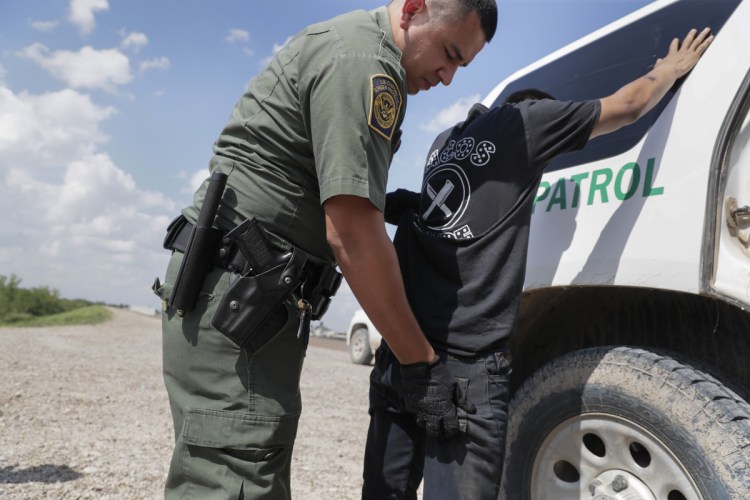WASHINGTON — The biggest private prison operators, which have poured money into Republican coffers, stand to make a windfall from President Trump’s “zero tolerance” policy on illegal immigration that has pushed thousands of undocumented immigrants into detention.
The Department of Homeland Security is considering adding space for 15,000 more people in family detention centers, about five times current capacity, even as the number of border crossings declines.
GEO Group Inc. and CoreCivic Inc., which each run a facility that holds immigrant families in Texas, have made more than $2.5 million in combined political donations since 2015. GEO shares have returned 85 percent and CoreCivic’s 79 percent since the 2016 presidential election. Both have advanced this month, even as U.S. stock markets sputtered.
The surge in detainees to about 40,000 has followed a nationwide crackdown on undocumented immigrants already in the country as well as a policy adopted in April to detain people crossing the border illegally, separating parents from their children. Trump halted the practice last week amid a public uproar. A judge has since ordered the administration to reunite families separated at the border within 30 days, making the need for family detention centers more urgent.
Earlier this month, CoreCivic Chief Executive Officer Damon Hininger raved about the company’s prospects. This is “the most robust kind of sales environment we’ve seen in probably 10 years, not only on the federal side with the dynamics with ICE and marshals, but also with these activities on the state side,” he said at a June 5 investor conference in New York.
DHS last week published a request for information on what it would cost to detain 15,000 people in family facilities, which would include recreational, medical and educational components and shouldn’t resemble a prison. Current family detention facilities in the U.S. have a capacity of about 3,200.
GEO Group, the biggest private prison operator, runs 11 immigrant processing centers around the country and one family residential center in Karnes County, Texas, under contract with ICE. CoreCivic runs eight, including a facility for families in Dilley, Texas.
Neither company holds unaccompanied children. Their family detention centers are for mothers and children, who are typically there for short periods.
“CoreCivic has partnered with the federal government to operate detention and residential facilities for more than 30 years, and we stand ready to understand and accommodate their changing needs,” CoreCivic spokesman Steven Owen said in a statement. “To that end, we will review the RFI and assess how best to respond to it. For obvious competitive reasons, we cannot elaborate beyond that.”
GEO spokesman Pablo Paez said the company wouldn’t comment on procurement.
In fiscal 2017, the Border Patrol apprehended about 350,000 people, down about 24 percent from the previous year, the Department of Homeland Security said. About 70 percent of immigrant detainees are held in facilities owned by private companies, according to the National Immigrant Justice Center.
“If we have moral panic around certain issues, like drugs, or immigration, then we have more people getting locked up,” said Bob Libal, Grassroots executive director. “Apprehensions at the southern border are at 15-year lows, but the number of people being criminally prosecuted has spiked dramatically.”
The administration has argued it was forced to separate children from their parents in part because of a legal case from the Clinton administration era known as the Flores settlement, which prohibits immigrant children being held for more than 20 days, even with their parents.
Last week, the Justice Department filed a motion to allow children to be kept in detention with their families for more than 20 days.
CoreCivic gets more than 80 percent of its earnings from owning and operating prisons, jails and detention centers, Hininger said at the conference.
Copy the Story LinkSend questions/comments to the editors.



Success. Please wait for the page to reload. If the page does not reload within 5 seconds, please refresh the page.
Enter your email and password to access comments.
Hi, to comment on stories you must . This profile is in addition to your subscription and website login.
Already have a commenting profile? .
Invalid username/password.
Please check your email to confirm and complete your registration.
Only subscribers are eligible to post comments. Please subscribe or login first for digital access. Here’s why.
Use the form below to reset your password. When you've submitted your account email, we will send an email with a reset code.